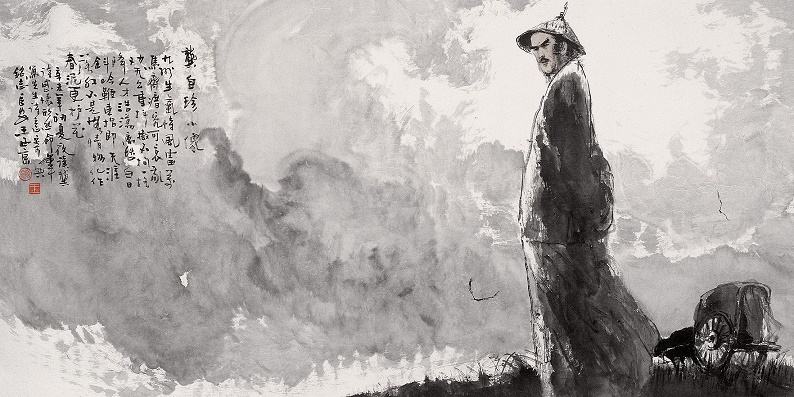Gong Zizhen A reform-minded official and poet
3 min readGong Zizhen was a famous scholar,thinker and poet.He was also a great pioneer of the reform movement that unfolded in the late Qing Dynasty(1644-1911).His ideas later influ-enced a generation of reformists,including Kang Youwei and Liang Qichao.
Gong was born in a family of prominent scholars and officials in today’s Hangzhou in Zhejiang Province.He movedto Beijing,the capital of the Qing Dynasty,with his parents when he was only six years old.
As a child,he was required to read all the classics in liter-ature, poetry and philosophy. But, when he grew up, Gong became more interested in social and government affairs.
When he was 29, Gong passed the imperial civil exami-nations at the provincial level and obtained the title of juren, or “recommended man.”A few years later he gained the title of jinshi, or”presented scholar,”after graduating from the palace examination administrated in Beijing.
In his career as an official, Gong had been assigned to a series of low-ranking positions in the Qing administration and the highest office he ever held was a chief official on the Board of Rites and Ceremonies.

As an upright official, Gong was very critical of the widespread corruption in the Qing government. He wrote many essays to condemn the long-standing malpractices in the administration. He also pointed out that apart from domestic troubles, the country was facing external threats from the Rus-sian Czar in the north and the Japanese aggression in the east.
When he learned the Qing government sent his colleague Lin Zexu to the south to suppress the opium trade, he was very excited and advised Lin to beef up military defenses on the southern and southeastern coasts to fend off a possible invasion of British warships.
However, seeing that he could do little to change the government as a minor official, Gong resigned in disillusion-ment in 1839 when he was only 47.
On the way home to Hangzhou, Gong wrote more than 300 poems in the traditional form of qiyan jueju or seven-character, four line”cut-shorts.”In these poems, the writer recorded what he had seen along the journey, expressed his deep concern about the coun-try on the eve of the Opium War and put forward his ideas for reform.
Gong believed all the problems that had been plaguing the government and society were caused by a disheartening dearth of talents. He said the imperial court was staffed by unqualified officials due to a lack of talent and even”dumb” thieves and “incapable”bandits were roaming the streets around the country. He also predicted the country would inevi-tably fall into chaos one day due to a lack of talent. Therefore, he called for an urgent reform to change the social system to bring forth a generation of variegated talents to help revitalize the country. One of his most famous poems reads to the effect:”The country’s revival calls for raging storms, It’s sad to see a nation aching in silence; I plead to God to rejuvenate himself and bring us more than one kind of talent.”The poems Gong wrote on the journey were later com-piled into a book, which is still quite popular among Chinese people today.
In 1841, Gong fell ill when he arrived at Danyang in to-day’s Jiangsu Province, about 400 kilometers from his home-town, and died there soon after.








